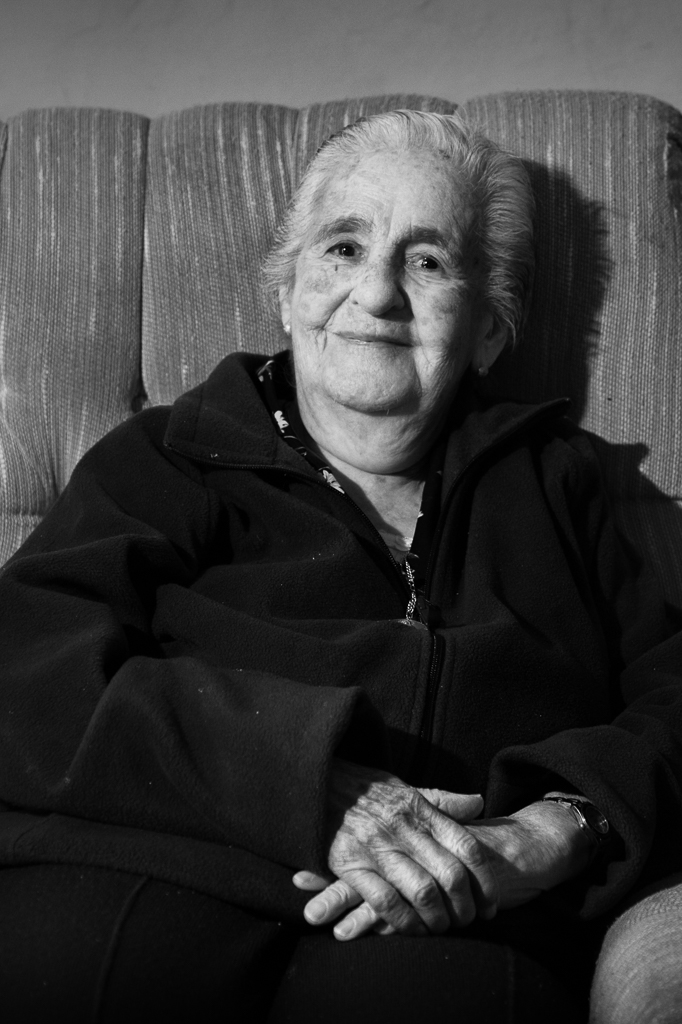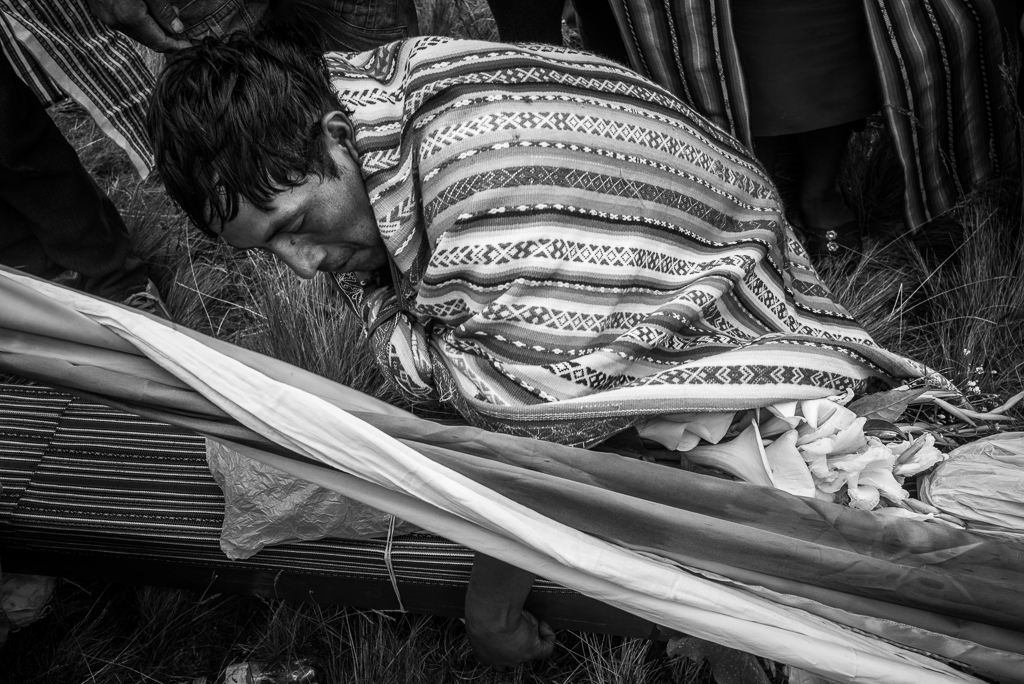The Devil
Chole, and her relationship with the Devil.
The Devil had always been close to Chole; it was never clear whether he was friend or foe because humans are very poorly equipped to judge the deeds of celestial beings and, as far as angels go, the Devil is quite a complex one. The truth is that he always followed Chole everywhere like a stray dog. As I write these words many years after her death, I think she honestly had something that the Devil lacked. A corporeal way of mattering, an innate capability to become; her way of walking, of looking at the avocado tree in the backyard, of clasping her hands together, all these seemed like the everyday-life projections of something remarkable that the Devil sought to bring out. Only God knows what the Devil wants when he decides to affix itself to someone’s soul, and only the Devil knows the two sides of the sword that is granted by such engagement.
Chole was born during the Year of Hunger. Venustiano Carranza was returning with his Northern Division Army to Mexico city, victorious, wretched, tired. His men marching alongside the southern regiments of Zapata; silently united, downcast like a kid who finally understands the unbearable weight of universal truth; miserable, because war grants no victories to anyone. The premonition in the guts of everyone that dusty evening was the most sincere and pure expression of the aftermath of conflict: scarcity, sickness, death. History would confirm it.
The rain was about to fall. It was 1915.
Cotija was a protectorate of the heavens, and its righteous people were too far removed from the horrors of war. So said the Archbishop. In reality, the town had been burned twice, bodies hung from the branches of lush trees a the main square, people often ran to the mountains praying for their lives, and old carts carried the dead through muddied streets. All of this happened in front of the kid that would become my grandmother and the silent, millenary eyes of Chole.
“What the Archbishop wanted to say” corrected my grandmother many years later “was that we are all going to go to heaven anyway, thanks to the Love of Our Lord Jesus.” Chloe was still silent. One of the advantages of having the Devil by your side is that your insider information is less compromised.
I was still a kid. When I remember those days I see big open windows, light everywhere, white cloths over an enormous table, endless amounts of guacamole, warm tortillas made by Chole seconds ago in the kitchen, pork rinds, limes, avocados from the orchard, a multitude of sauces and rows of family bishops and priests scattered around the dining room. It was not uncommon for my grandfather, fifth brandy in hand, to discuss forbidden subjects in French with his brother, who knew all about math, medicine, and astronomy. I suspected French was how you approached issues that were not meant for public discussion but more importantly, those who spoke this language were open to difficult questions. That’s why I took my grandfather aside one night to ask:
“Abue, why is Chole so silent?”
My grandfather, who was different from other men around him and perhaps had a bit of the Devil himself, looked at me for a long time. His mouth appeared to be carved in wood, warm and immobile. He always treated me with the respect of someone who understands that wisdom is a big puzzle, and we all have one or two pieces whether we know it or not. He would always listen attentively, trying to discover if you were perhaps gifting him one of these pieces. He finally spoke softly, as if I was a ghost and the words had to permeate through the delicate curtain that separates real from unreal. The moon was reflected in the depth of his eyes.
“That is the nature of Soledad, my son. Remember this answer and go back to it later in life.”
Chole is short for Soledad: solitude. The nature that my grandfather spoke of was the nature of the divine, of beings that are condemned to know things that go far beyond what our average eyes can see. They either call for revolutions or retire to dark corners to suffer the burden of this knowledge. Just like a Goddess, Chole had everything and nothing for other than my family, a relentless devotion to her one God, and her unwilling friendship with the Devil, she was entirely alone. Of all these things, the one that was truly hers was the Devil.
In a town where men are the law and women supposed to be silent (particularly among bishops and priests), the Devil was perhaps trying to make a difference, to bring balance, to make visible the invisible. Chole spent her life concealing that inner voice under the language her society created to shape reality in the form of a cross. Here is were the Devil went wrong: he probably wanted a humble start, a bottom-up approach just as that Jewish God did, someone people could relate to, and it took most of Chole’s life (nothing but a second in Devil’s timeline, I’m sure) to realize she was not going to work. Chole was too docile among her people, she had inherited both loneliness and servitude, and would not renounce them just because the Devil showed her an alternative. Chole saw this world in silence, understood it even, and then quietly went on to play the role she was expected to play without a single improvised act of courage.
As time went by, the relationship between Chole and the Devil became more honest, more mature. The Devil knew Chole was not going to change but was stuck with her anyway. As we grow old we do more of what we want, and less of what is expected, and the same happened to both of them. She stopped hiding the fact that her body always cast two different shadows, she started to openly criticize the Devil’s point of view, the way he looked at her at the end of the day, the distance he kept when they walked. Like two lovers who eventually grow tired of each other Chole would not leave the Devil alone and wanted to make sure we knew all that was despicable about him.
In a divine act of irony, Chole failed to make people understand what a hateful bastard the Devil was because, as a woman, nobody believed her. The Devil’s reputation was protected by the very social darkness Chole was supposed to challenge. I explain: if a man sees a ghost in a house, the house is haunted, but if a woman sees a ghost, she is crazy. Chole could only aspire to be mad.
Towards the very end of her life, the Devil tried one last desperate act to redeem Chole’s honour (and perhaps his own). He took her frail body and lifted it three stories high into the air, gently depositing it atop the rooftop of my grandmother’s house. There was no way to the roof, so it took a handful of very concerned people, many ladders, and a whole afternoon to get her down safely.
When asked how she did it, Chole was supposed to say “The Devil put me there to prove I’m not crazy”, but instead she explained, “The Devil was chasing me down, and Uncle Raphael (a family saint) took me there to protect me”.
Soledad was ever faithful to the invisible and fearful of the visible until the end. The Devil did not leave Cotija, other stories like this one remain.

Related Entries

Defying Stories
Telling your stories is an act of defiance.
Read article

A mi abuela
Un par de palabras para recordar a mi abuela Teresa.
Read article

Magellan's Mask
A story to commemorate the day of the death.
Read article

Peru
The mountains, the people, and the great highlands of Peru.
See photographs

The Hidden Layers
The world is full of hidden layers. How many have you touched yet?
Read article